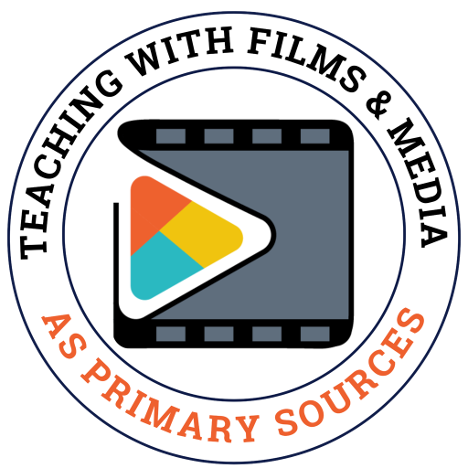UT Receives Library of Congress Teaching with Primary Sources Grant

By, Cara Smith, CEHHS Student Reporter, Class of 2024

Films and media are tools educators use to easily enhance teaching and learning in the classroom. The potential of using a film or media to dive into the deeper message and break down different themes is something important to Joshua Kenna, associate professor of Social Science Education and director of Graduate Studies in the College of Education, Health and Human Sciences’ (CEHHS) Department of Theory and Practice in Teacher Education at the University of Tennessee, Knoxville.
Kenna, along with professor of Social Science Education, Stewart Waters, doctoral student, Matthew Stevenson, and assistant professor at East Tennessee State University, Matthew Hensley—comprise the project team managing a Library of Congress Teaching with Primary Sources (TPS) grant awarded to the University of Tennessee on Oct. 1. Totaling $99,554, the grant provides one year of funding, with the possibility of two additional one-year grants, contingent upon successful delivery of TPS educational projects based on Library of Congress digitized materials.
UT’s TPS grant project, “Teaching with Film and Media as Primary Sources” intends to train pre-service and in-service teachers to develop lesson plans that capture the rising popularity of film and media consumption among 21st-century students to improve their critical thinking and media literacy skills.
The project idea originated in a doctoral course with Kenna and Stevenson. Later it was refined to develop a website for teachers to access ready-made lesson plans for different films featured on the Library’s National Film Registry, collections found on the Library’s Motion Image Research Center, and other Library of Congress digitized primary sources. These lesson plans will be incorporated into current Social Science Education courses, taught by Waters, and made by CEHHS students. The lesson plans each focus on a specific film, how to utilize it as a primary source, and encourage critical thinking skills.
“The lesson plans that we’re designing are not necessarily about teaching the whole movie, but instead focuses on specific clips,” said Stevenson. “For example, using a one-minute clip and then talking about different themes and elements within that one clip.”
The National Film Registry contains 875 diverse, American-made films dating from 1891-2013. These films are unique because the Library of Congress keeps the original film.
“The focus of the film registry is not just about great films; it’s about great American films that have a cultural component to America,” said Kenna. “The Library then keeps the actual film safe, and archives it.”

By utilizing films from the National Film Registry, the lesson plans allow students to use their critical thinking skills to not only ask questions about the film itself, but also about the time period from which it came.
“Discussing the films and investigating the things that helped lead up to the creation of the film is what helps the critical aspect of thinking,” said Kenna. “We’re teaching students to always ask questions, and then where to go to find answers to the questions.”
Creating lesson plans from the National Film Registry will be implemented in Waters’ Social Science Education 485 and 585 courses starting in spring 2025.
Since 2006, Congress has appropriated funds to the Teaching with Primary Sources program to establish and fund a consortium of organizations working to incorporate “the digital collections of the Library of Congress into educational curricula.” Each year, members of the TPS Consortium support tens of thousands of learners to build knowledge, engagement and critical thinking skills with items from the Library’s collections.
The Library of Congress is the world’s largest library, offering access to the creative record of the United States — and extensive materials from around the world — both on-site and online. It is the main research arm of the U.S. Congress and the home of the U.S. Copyright Office. Explore collections, reference services and other programs and plan a visit at loc.gov; access the official site for U.S. federal legislative information at congress.gov; and register creative works of authorship at copyright.gov.[SM1]
Through its seven departments and 13 centers, the UT Knoxville College of Education, Health, and Human Sciences enhances the quality of life for all through research, outreach, and practice. Find out more at cehhs.utk.edu